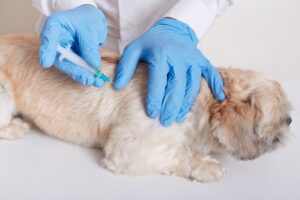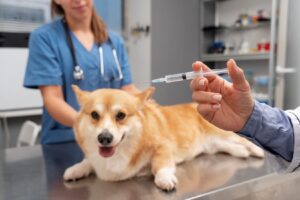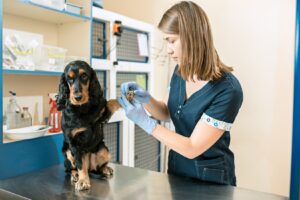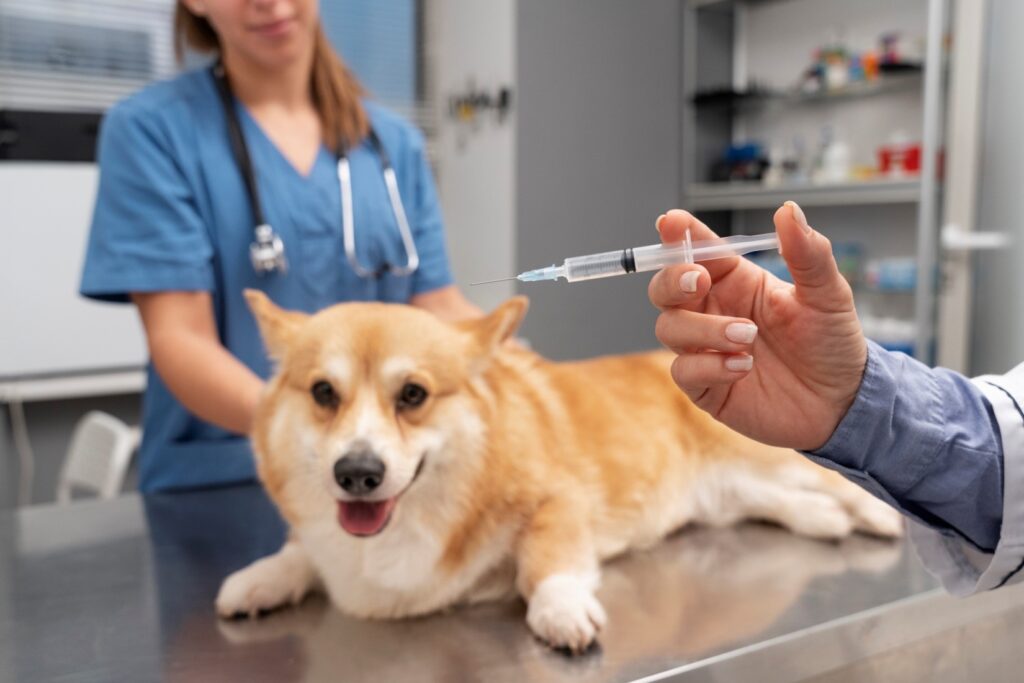
Rabies is a dangerous viral disease that attacks the nervous system, posing a serious threat to both humans and animals. Although it is rare in developed countries, it still remains a concern in areas with limited access to vaccines. Because dogs are primary carriers of the virus, they are especially vulnerable. Fortunately, with the Rabies Vaccine for Dog, you can protect your pet effectively. By staying proactive and following a vaccination schedule, you ensure your dog stays safe from this deadly disease.
Understanding Rabies Vaccine for Dog
Rabies is a zoonotic disease, meaning it can be transmitted from animals to humans. The virus is typically transmitted through the bite of an infected animal, such as a raccoon, skunk, bat, or dog. Once the virus enters the body, it travels to the nervous system, causing severe neurological symptoms that can ultimately lead to death.
The Importance of Rabies Vaccination
Rabies vaccination is a crucial preventive measure for dogs. It stimulates the dog’s immune system to produce antibodies that can neutralize the rabies virus if the animal is exposed. Regular vaccination is essential to maintain immunity and protect both the dog and the people around it.
When Should You Vaccinate Your Dog?
The initial rabies vaccination is typically administered between the ages of 12 and 16 weeks. A booster shot is usually recommended one year later, followed by booster shots every one to three years, depending on local regulations and veterinary recommendations.
The Vaccination Process
Rabies vaccination is a simple and painless procedure. A veterinarian will administer the vaccine, usually as an injection. The vaccine is typically well-tolerated by dogs, with minimal side effects.

Benefits of Rabies Vaccination
- Protects Your Dog: Rabies vaccination is highly effective in preventing your dog from contracting the disease.
- Protects Your Family: By vaccinating your dog, you protect your family and other people from the risk of rabies infection.
- Peace of Mind: Knowing that your dog is vaccinated can give you peace of mind and reduce anxiety about potential exposure to the rabies virus.
- Legal Compliance: In many jurisdictions, rabies vaccination is required by law.
Common Myths About Rabies Vaccination
Despite the overwhelming benefits of rabies vaccination, there are still some common misconceptions. Here are a few of the most common myths:
- Myth 1: My Dog is an Indoor Dog, So It Doesn’t Need a Rabies Vaccine.
- Fact: Even indoor dogs can be at risk of rabies. They may encounter infected wildlife or other animals, or they may be accidentally exposed to the virus through a bite or scratch.
- Myth 2: Rabies Vaccines Can Cause Serious Side Effects.
- Fact: Rabies vaccines are generally safe and well-tolerated. Serious side effects are rare.
- Myth 3: My Dog Has Been Vaccinated, So It’s Protected for Life.
- Fact: Immunity from rabies vaccination wanes over time. Regular booster shots are necessary to maintain protection.
Animal Hospital of Aurora: You’re Pet’s Health Care Partner:
Animal Hospital of Aurora provides comprehensive veterinary care for your beloved pets. Our experienced team offers a wide range of services, from routine check-ups and vaccinations to advanced surgeries and dental care. We are committed to providing compassionate and personalized care, ensuring your pet’s optimal health and well-being.

Conclusion
Rabies vaccination is a critical component of responsible pet ownership. By protecting your dog from this deadly disease, you are also protecting your family and community. Remember to consult with your veterinarian to develop a vaccination schedule that is appropriate for your dog’s specific needs.
Additional Tips for Rabies Prevention
- Supervise Your Dog: Keep a close eye on your dog, especially when it’s outdoors. Avoid letting it roam freely, as this increases the risk of exposure to infected animals.
- Avoid Contact with Wild Animals: Teach your dog to stay away from wild animals, such as raccoons, skunks, and bats.
- Report Animal Bites: If your dog is bitten by another animal, report the incident to your local animal control agency immediately.
- Be Aware of Local Regulations: Familiarize yourself with local laws and regulations regarding rabies vaccination and licensing.
By taking these preventive measures and ensuring that your dog is up-to-date on its rabies vaccinations, you can help protect your furry friend and your community from the devastating consequences of this deadly disease.



